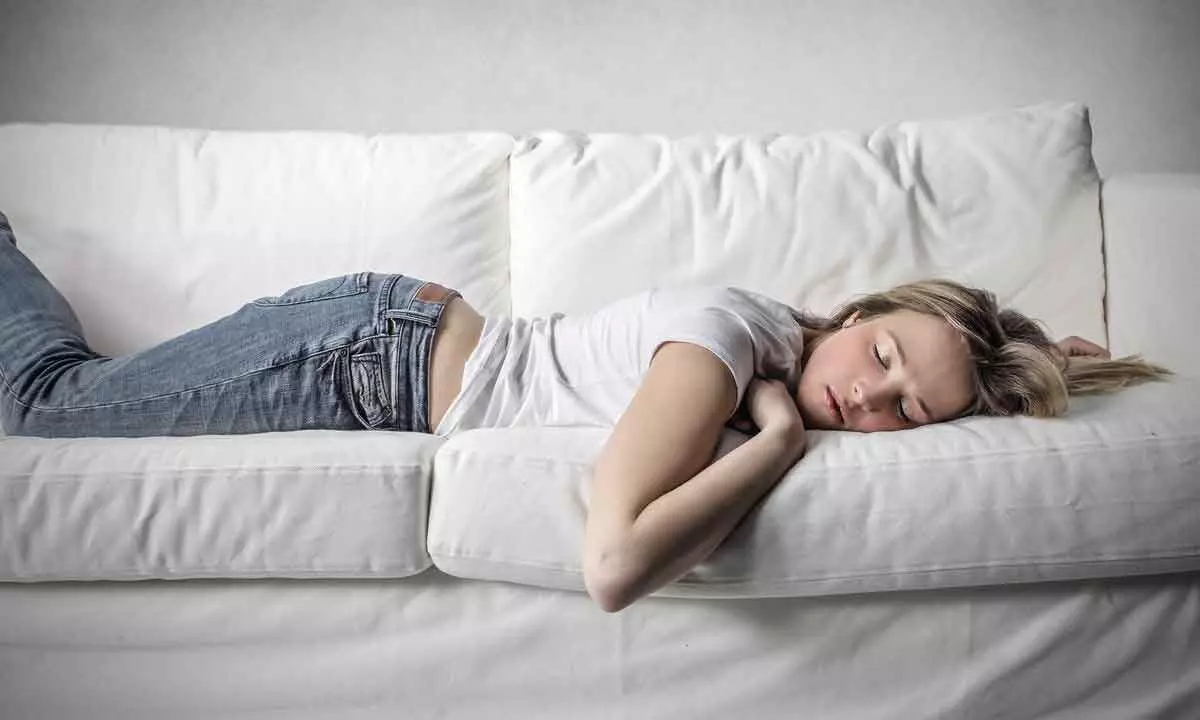Live
- Collector reviews arrangements for Guv’s visit
- 13 members of robbery gang arrested
- Country’s development depends on youth’s progress: Collector Vinod
- Exports picking up as mfg gains steam
- CM Revanth Reddy to Attend Commonwealth Mediation and Arbitration Conference Today
- Beware of new cyber scam ‘digital arrest’: SP Subba Rayudu
- Sensex, Nifty slip under pressure amid weak global cues
- Posters on novel solutions to problems at Tech Summit
- Conduct Tiruchanoor fest akin to Tirumala’s: TTD EO
- Allocate Khelo India funds for sports infra in SVU
Just In
90-30 nap formula can help counter drowsiness in night-shift workers: Study

A 90-minute nap followed by a 30-minute nap is more effective in putting off drowsiness and fatigue than a single 120-minute nap during the overnight duty, according to a new study.
A 90-minute nap followed by a 30-minute nap is more effective in putting off drowsiness and fatigue than a single 120-minute nap during the overnight duty, according to a new study.
The study, published in the journal Scientific Reports, analysed the data of pilot studies on night-shift naps conducted from 2012 to 2018.
“A 90-minute nap to maintain long-term performance and a 30-minute nap to maintain lower fatigue levels and fast reactions, as a strategic combination of naps, can be valuable for early morning work efficiency and safety,” said study sole author Sanae Oriyama, a nursing science professor at Hiroshima University’s Graduate School of Biomedical and Health Sciences.
Oriyama reexamined past pilot studies to compare alertness and performance after taking a nap and throughout a simulated 4 p.m. to 9 a.m. shift. And found that single 120-minute nap ending at midnight experienced worse drowsiness.
However, two naps -- the 90-minute one lasting until midnight and the 30-minute one ending at 3 a.m. -- staved off drowsiness.
“I want to be able to combine multiple naps, depending on the type of work and time of day, and choose naps that are effective at reducing drowsiness, fatigue, and maintaining performance,” Oriyama said.
“During a night shift that, for example, lasts from 4 p.m. to 9 a.m. the next morning, a split nap of 90 minutes and 30 minutes, ending at 12 a.m. and 3 a.m., respectively, is thought to be more effective than a 120-minute monophasic nap ending at 12 a.m.,” she explained.
Interestingly, people who took longer to fall asleep during the 90-minute nap session showed poorer scores in the Uchida-Kraepelin test (UKT), a timed basic maths exam meant to measure speed and accuracy in performing a task.
Oriyama said the findings could also be helpful to new parents.
”The results of this study can be applied not only to night shift workers but also to minimise sleep deprivation fatigue in mothers raising infants,” Oriyama added.

© 2024 Hyderabad Media House Limited/The Hans India. All rights reserved. Powered by hocalwire.com






